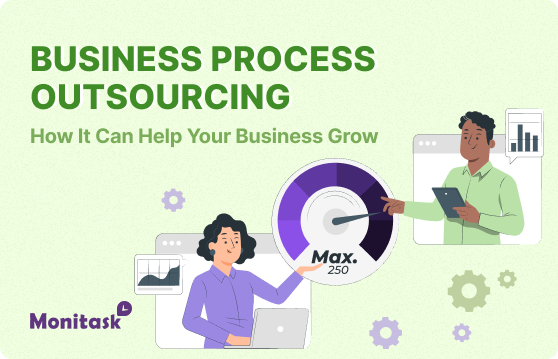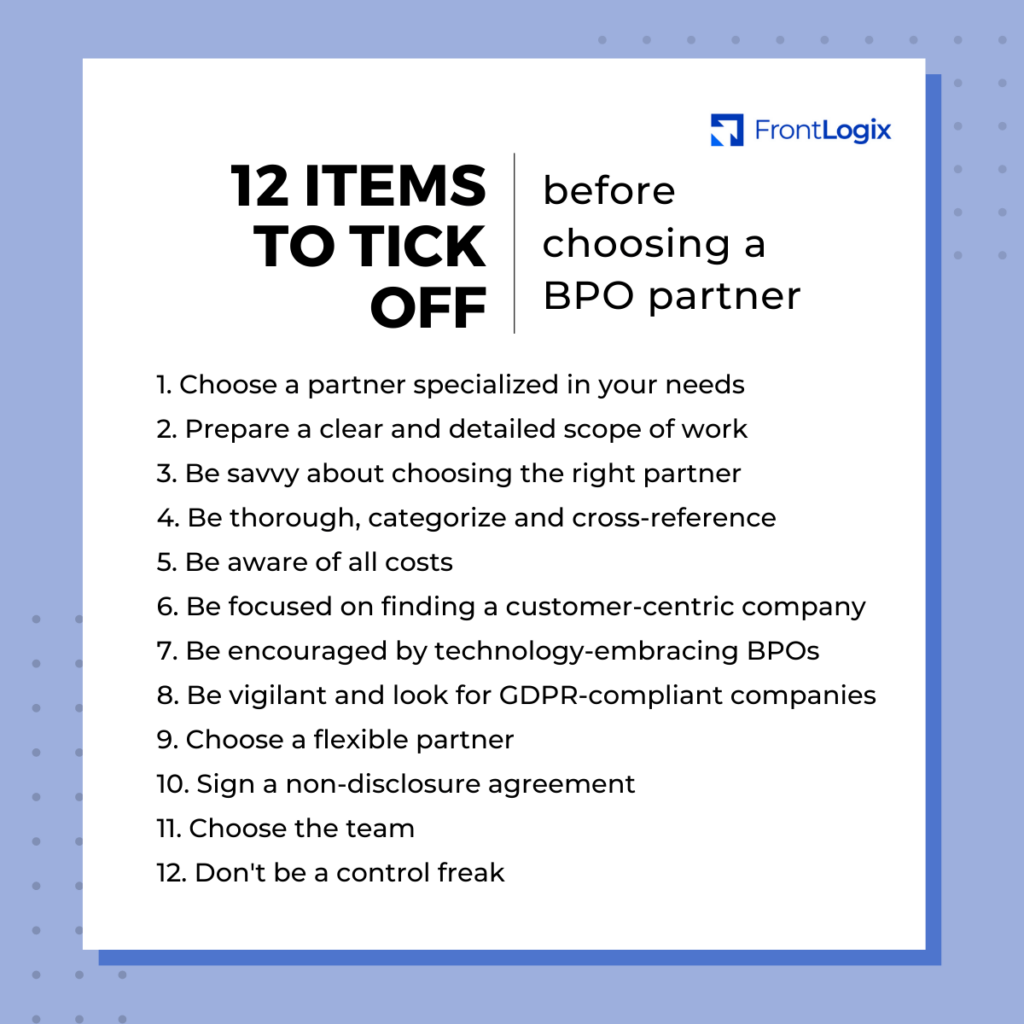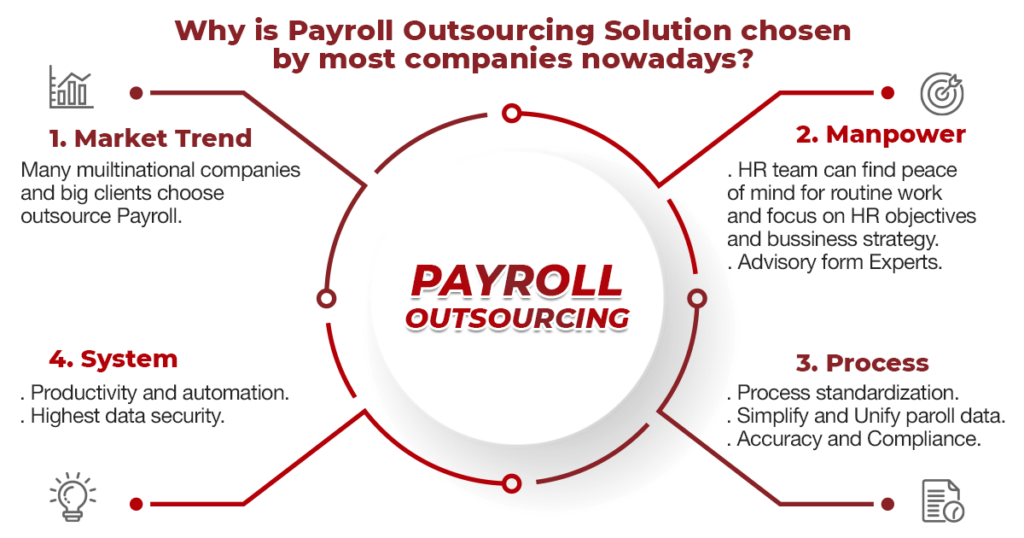How Business Process Outsourcing Can Help Your Business Grow

Business process outsourcing BPO is a business practice in which an organization contracts out specific tasks or processes to an external service provider.
These tasks or processes can include a wide range of back office or front office functions, such as customer support, data entry, human resources, accounting, and more.
The primary goal of BPO is to allow companies to focus on their core competencies while delegating non-core functions to specialized service providers who can often perform them more efficiently and cost-effectively.
BPO services are typically provided by third-party companies, which may be located either domestically or in other countries, depending on the outsourcing strategy.
About Business Process Outsourcing (BPO)
Business Process Outsourcing BPO outsourcing is contracting business processes to a third-party provider. The provider will execute, manage, and monitor the business process on behalf of the client, providing a competitive advantage through the delivery of higher-quality service, improved efficiencies, and cost savings.
Types of Business Outsourced
The BPO industry encompasses a wide range of tasks and functions that organizations can choose to outsource to specialized service providers.
Government agencies, large corporations, and small to mid size businesses can all benefit from outsourcing some or all of their non-core processes.
An outsourced business process can be categorized into two types, core processes and non-core processes. Usually, the most frequently outsourced businesses such as:
Business Process as a Service (BPaaS)
BPaaS solutions are a type of outsourcing provider that provides businesses with the ability to use cloud-based services. There are two types of pricing models BPaaS: subscription-based and consumption-based. Companies rely on the use of BPaaS when they need to:
- Automate business processes
- Improve customer experience
- Reduce operational costs
By using BPaaS, different companies can focus on their core competency and leave the management of business processes to an outsourced provider. BPaaS can help businesses grow in several ways. The most crucial benefit is that it enables businesses to take on new business initiatives without increasing their staff.
BPaaS also helps companies improve customer service, benefits administration of resources by reducing costs, and increase efficiency by automating routine tasks. It can also help businesses stay competitive by providing access to advanced technology and specialized expertise. When considering a BPaaS solution, businesses should look for:
- A third party service provider with experience in the business process to be outsourced
- The ability to quickly deploy solutions
- A provider with a global reach
- The ability to integrate with existing systems

BPO Services Run by Professional Experts
A business process provider or BPO company has the facilities and qualified technical personnel to staff their business processes and perform business process outsourcing. When you are looking for a BPO company, it is essential to find one that understands your business and has experience in the industry you operate in.
BPO companies should have a quality management system to ensure that the outsourced processes meet or exceed your expectations. Additionally, the provider should also have a business continuity plan in place to ensure that your processes can continue uninterrupted if an unexpected event occurs.
The Implementation of BPO in a Business
Implementing BPO is a multifaceted process that demands careful planning and execution. This process should involve a carefully crafted strategy, choosing the right outsourcing partner, and developing clear communication channels. Here, we outline five major steps to consider when implementing BPO in your business:
- Define Objectives and Scope:
Begin by defining clear objectives and the scope of work to be outsourced. Determine which processes or tasks are best suited for outsourcing and set realistic goals for cost savings, productivity improvements, or service enhancements.
- Vendor Selection and Due Diligence:
Thoroughly research and evaluate potential BPO service providers. Consider factors such as industry expertise, reputation, track record, and the ability to meet your specific requirements. Conduct due diligence to ensure alignment with your business values and objectives.
- Contract Negotiation and SLAs:
Craft a comprehensive contract that outlines all aspects of the outsourcing arrangement, including service level agreements (SLAs), pricing structures, data security protocols, and dispute resolution mechanisms. Ensure that the contract supports flexibility and scalability as your business evolves.
- Transition and Knowledge Transfer:
Plan and execute a smooth transition of responsibilities from your in house teams to the BPO provider. Facilitate knowledge transfer by documenting processes, providing training, and establishing ongoing communication channels to address questions and issues.
- Performance Monitoring and Continuous Improvement:
Implement robust performance monitoring mechanisms, including key performance indicators (KPIs) and regular reporting.
Continuously assess the BPO provider’s performance against SLAs and work collaboratively to identify opportunities for process optimization and innovation in the business functions.
By following these key steps, businesses can effectively implement BPO solutions that align with their strategic goals, enhance operational efficiency, and maintain a competitive edge in an ever-evolving market.
The Benefits of BPO Providers
Greater Operational Flexibility
A BPO company enables organizations to adapt swiftly to changing circumstances. BPO allows companies to scale their operations up or down efficiently, responding to fluctuations in demand or market conditions without the burden of maintaining a fixed in-house workforce. This scalability minimizes resource wastage and supports cost optimization, either for back office functions or front office.

BPO frees up internal resources by outsourcing non-core functions, allowing businesses to focus on core competencies. This strategic focus fosters innovation, enhances competitiveness, and ensures agility in a dynamic business environment. Greater operational flexibility through business process reengineering empowers organizations to navigate uncertainties, optimize costs, and maintain a competitive edge.
Access to Innovative Technologies
BPO companies often invest in cutting-edge technologies and tools to enhance their service delivery. By partnering with these providers, organizations gain access to these innovations without the need for substantial capital expenditures.
This access allows businesses to stay current with technological advancements, improving their operational efficiency and competitiveness.
BPO providers’ expertise in innovative technologies like machine learning and robotic process automation drives process optimization, automation, streamlined operations, reduced errors, and faster task execution.
Leveraging BPO’s technological capabilities enhances overall productivity and adaptability to industry standards and customer expectations.
Access to Top Talent
A BPO provider has skilled professionals in finance, IT, customer service, and more. Partnering with them enables organizations to access expertise without the challenges and costs of in house talent management. This access drives operational excellence through top-notch skills and knowledge.
A BPO company has a global reach, accessing diverse, specialized talent. This brings different perspectives, fostering innovation. Leveraging BPO expertise and talent empowers organizations and the HR department to enhance service quality, gaining a competitive edge, and adapting to industry demands.
Cost Savings
By outsourcing non-core functions to specialized service providers, organizations can significantly reduce their operational costs. A BPO company often operates in regions with lower labor and infrastructure costs, allowing businesses to leverage these economies of scale. This results in cost-efficient service delivery without compromising quality.
BPO eliminates the need for substantial investments in infrastructure, technology, and workforce expansion. Companies can allocate resources more effectively, directing capital towards strategic initiatives instead of maintaining and expanding in-house operations. This leads to improved financial stability and increased profitability.
Access to Advanced and Quick Reporting
BPO companies often utilize advanced reporting tools and analytics platforms to monitor and assess processes in real-time. This capability allows organizations to gain access to deeper insights into their operations, enabling data-driven decision-making for process optimization and performance enhancement.
BPO providers excel in generating comprehensive reports, offering valuable business intelligence. These reports cover key performance indicators (KPIs) and process efficiency metrics, equipping organizations with critical information for strategic decision-making, allowing continuous improvement, and promptly responding to industry trends and challenges.
Better Change Responses
Improved analytics simplify responses to market changes and opportunities. A BPO company excels at adapting rapidly and efficiently, utilizing established processes and teams to manage transitions seamlessly. This agility enables organizations to navigate change with ease and effectiveness.
BPO companies offer valuable expertise in change management, drawing from experience across industries to provide best practices and insights for successful implementation. This expertise facilitates smoother change implementation, minimizes disruptions, and achieves desired outcomes efficiently.

Specialized Risk Management
BPO providers are experienced in identifying and managing risks associated with business processes. They implement strong risk management protocols to ensure compliance with industry regulations. This expertise helps organizations navigate regulatory landscapes and avoid compliance-related issues.
BPO providers also share operational and strategic risks associated with outsourced functions, offering financial protection and risk mitigation for clients. By leveraging the risk management expertise of BPO partners, organizations can focus on core activities confidently, knowing that potential risks are being addressed proactively by experts.
Greater Competitive Advantage
By outsourcing non-core functions to specialized service providers, organizations can focus their internal business functions and expertise on core business activities. This strategic reallocation enhances efficiency, innovation, and competitiveness, enabling companies to differentiate themselves in the market.
A BPO company offers specialized skills, advanced technologies, and industry knowledge not readily available in-house. Leveraging these capabilities enhances service quality, streamlines operations, and positions businesses for sustained success in a competitive landscape.
Maximize productivity of your business
Track employee productivity and simplify work with them
Disadvantages of Business Process Outsourcing
Public Backlash
When organizations choose to outsource jobs, especially to offshore locations, it can lead to negative public perception. Concerns often arise about the loss of domestic jobs and the exploitation of cheaper labor markets, resulting in criticism and potential damage to a company’s reputation.
In some cases, public backlash can lead to consumer boycotts, protests, or negative media coverage. Companies may need to invest in public relations efforts to manage and mitigate these concerns, which can add to the overall cost and complexity of outsourcing.
A Learning Curve
One of the disadvantages of Business Process Outsourcing BPO is the initial learning curve that organizations often face. When outsourcing specific processes or functions, there’s a period during which both the client organization and the BPO provider must familiarize themselves with each other’s operations, systems, and expectations.
During this transition phase, businesses may face challenges like miscommunications, process adjustments, and reduced productivity as both parties adapt to the new working relationship. To minimize the learning curve’s impact, organizations should invest in thorough onboarding and training for their teams and the BPO provider’s staff.
Loss of Control
When businesses outsource processes to external providers, they relinquish direct oversight and decision-making authority. This can lead to concerns about quality control, compliance, and alignment with the company’s values and objectives.
BPO agreements usually include SLAs and performance metrics, but client organizations may have limited control over day-to-day operations. This can be challenging when outsourced processes are vital to core functions or customer interactions. To tackle this, organizations should establish robust governance structures and regularly monitor performance against agreed metrics.
Communication Breakdowns
When processes are outsourced to external companies, physical and geographical separation, coupled with potential language and cultural differences, can hinder effective communication. Misunderstandings and miscommunications may arise, leading to delays, errors, and challenges in information sharing.

Ineffective communication can significantly impact project timelines, deliverable quality, and collaboration. It can also hinder resolving complex outsourcing issues. To overcome this challenge, organizations need strong communication protocols, clear expectations, and regular interaction channels.
Hidden Costs in Contractual Agreements
While BPO engagements often come with detailed pricing structures and service level agreements (SLAs), there may be hidden or unforeseen costs that emerge during the course of the contract. These can include additional fees for specific services, unforeseen operational expenses, or unexpected penalties for non-compliance with contractual terms.
Hidden costs can strain outsourcing finances, impacting cost savings. Thorough due diligence in BPO contract negotiations is vital to address this challenge. Account for all potential costs and contingencies. Clear communication and transparency with the provider minimize risk and ensure financial predictability in the outsourcing relationship.
When a company outsources critical functions, the BPO provider’s reputation becomes intertwined with the client’s. Negative incidents such as data breaches, service disruptions, or ethical concerns can harm the client’s brand, erode customer trust, and lead to legal and financial consequences.
Organizations should carefully select BPO providers with a proven track record of knowledge process outsourcing, compliance, security, and ethical conduct. A robust risk management strategy and contingency plans can address any reputational challenges during the outsourcing relationship.
How to Choose the Right BPO Partner for Your Business?
The Scale of the Potential Partner’s Company
It’s essential to assess whether the BPO provider has the capacity and resources to meet your business needs effectively. Evaluate their infrastructure, workforce, and global reach to ensure they can scale operations with horizontal offerings, adapt to your requirements, and provide the necessary support, especially for vertical specific offerings. A BPO partner with a robust and scalable infrastructure is better positioned to deliver consistent and high-quality services, regardless of changes in your business volume or complexity.
The Partner’s Experience in the Industry
Look for a BPO provider that has a proven track record of being an established company working with businesses similar to yours. Their industry-specific knowledge and expertise can significantly impact the quality of services they deliver. A partner with relevant industry experience is more likely to understand your unique challenges, managed services, compliance requirements, and customer expectations, allowing for smoother integration and better alignment with your business objectives.
The Ability to Meet Your Specific Needs
Ensure that the BPO provider can offer tailored solutions and customize their services to align with your business requirements. This includes evaluating their flexibility, scalability, and willingness to adapt to changing circumstances. A BPO partner that can cater to your unique needs is more likely to deliver the level of service and support necessary to help your business succeed and grow effectively.

Excellent Reputation and Reliability
A BPO provider’s reputation significantly affects your business’s brand and success. Research and gather feedback from businesses with a proven track record of delivering high-quality services and maintaining a positive industry reputation. Look for client testimonials, references, and case studies to assess reliability and performance. Choosing a BPO partner with an excellent reputation reduces the risk of service disruptions, compliance issues, or reputational damage to your business.
The Cost of Partnering with the Potential BPO Provider
While cost should not be the sole determining factor, it’s essential to assess whether the BPO provider’s pricing aligns with your budget and offers business value for the services provided. Compare pricing structures, including any hidden or additional costs, and ensure transparency in contractual terms. Striking a balance between cost-effectiveness and quality service delivery is crucial in choosing the right BPO partner for your business.
The Quality of Customer Service and Support
Strong customer service from the BPO provider is vital for effective communication, issue resolution, and collaboration. Assess their responsiveness, accessibility, and willingness to address your concerns promptly. A BPO partner that prioritizes excellent customer service ensures a smoother and more productive working relationship, enhancing your overall outsourcing experience and the success of your business operations.
The Range of Their Services
Opt for a BPO provider with a comprehensive portfolio of services that align with your business needs. This versatility allows for potential future expansions or adjustments in your outsourcing requirements without the need to seek additional partners. A BPO partner offering a broad spectrum of services can provide a one-stop solution, simplifying your outsourcing efforts and ensuring a more integrated and efficient outsourcing experience.
The Risks of BPO
Business process outsourcing (BPO) offers various benefits but also comes with inherent risks. One significant risk is the potential loss of control over outsourced processes. When a company entrusts critical functions to an external provider, there’s a risk of reduced visibility and influence over those operations. This can lead to issues like quality variations, compliance challenges, and limited agility in responding to changing business needs.
BPO poses the risk of data security breaches and confidentiality breaches. Sharing sensitive business data with third party vendors introduces vulnerabilities, which, if not managed carefully, can lead to data leaks, cyberattacks, or unauthorized access. Organizations must implement robust data protection measures and stringent contractual agreements to mitigate these risks and protect their intellectual property and customer information.

Why Outsource the Non-Essential Business Tasks to BPO
Tips for Successfully Implementing BPO in Your Business
1. Make a Plan
When implementing a BPO, start by creating a comprehensive plan that clearly defines your objectives, outlines the scope of the outsourcing project, and establishes a timeline for execution. Having a clear plan in place helps to set realistic expectations, avoid potential scope creep, and ensure a smoother transition from in house to outsourced processes. Ask yourself:
- What are the critical business processes we intend to outsource?
- How will this align with our overall business strategy?
- What are the expected outcomes and how will we measure success?
2. Consider Your Budget
Business process outsourcing can be a costly endeavor, so it’s important to make sure you have a realistic budget in place. Consider the cost of both the BPO services and any additional expenses, such as technology integration or training costs. Be transparent with your BPO partner about your budget constraints to avoid any surprises down the line.
3. Pick The Right Provider
Not all BPO providers are created equal. It’s important to do your research and find a company that has the experience and expertise to meet your specific needs. When deciding to outsource business functions, the provider you choose should be able to help you improve efficiency, reduce costs, and maintain high-quality standards.
4. Train Your Employees
For business process outsourcing to be successful, your employees must be on board and understand the new process. Ensure that your existing employees are well-prepared for the changes that outsourcing may bring. Offer comprehensive training programs that cover new roles, responsibilities, and workflows resulting from the BPO arrangement.
Examples of Business Process Outsourcing
Payroll
Many organizations choose to outsource their payroll functions to specialized service providers. In this arrangement, the BPO provider takes responsibility for calculating employee salaries, payment processing, deducting taxes and other deductions, and generating payroll reports.
Outsourcing payroll processing helps businesses streamline financial operations, ensure tax compliance, and reduce administrative burdens. It also provides access to payroll expertise, leading to cost savings and efficiency improvements without the need for an in-house payroll department.

Call Centers Customer Service
Many businesses opt to outsource their customer support functions to specialized call centers BPO providers. In this setup, the BPO provider handles customer inquiries, resolves issues, and provides support through various communication channels like phone, email, chat, or social media on behalf of the client organization.
Outsourcing customer service to a BPO improves support while reducing costs. BPO providers have well-trained, multilingual staff, advanced technology, and scalable operations for efficient call handling. This ensures timely assistance and boosts customer satisfaction and loyalty.
Supply Chain Management
Organizations often partner with BPO providers to optimize their supply chain, including procurement, inventory management, logistics, and order fulfillment. BPO providers use their expertise, technology, and global networks to streamline operations, cut costs, and improve efficiency.
Outsourcing supply chain management enables companies to focus on core competencies and strategic initiatives, leveraging the specialized knowledge and resources of a BPO provider. This facilitates quick adaptation to market demands, enhances supply chain visibility, and boosts competitiveness in the marketplace.
What Are the Three Types of BPO
Onshore Outsourcing
Onshore outsourcing, or local outsourcing, involves contracting BPO services to a service provider within the same country.
For example, if a U.S.-based company outsources a business function such as customer support to another U.S. company, it’s considered onshore outsourcing.
It’s preferred when proximity, cultural alignment, and regulatory compliance are crucial. It offers easier communication, similar time zones, and a shared legal and regulatory environment.
Offshore Outsourcing
Offshore outsourcing involves delegating business processes to a service provider in a different country with lower labor costs.
For example, a U.S. company may outsource software development to India or customer service to the Philippines. It offers cost savings, access to a global talent pool, and 24/7 operational coverage.
However, it can also present challenges such as cultural and language barriers, as well as security and data privacy concerns.
Nearshore Outsourcing
Nearshore outsourcing strikes a balance by outsourcing to a neighboring or close country.
For example, a U.S. company might outsource a business functions such as telemarketing to a service provider in Mexico or Canada. It offers cost savings compared to onshore outsourcing while maintaining proximity for easier travel, collaboration, and similar time zones.
It’s chosen when organizations want cost-efficiency with ease of communication and cultural compatibility.
The Top BPO providers
Accenture, IBM, Cognizant, TCS, Infosys y Wipro are the top business process outsourcing services providers in the world. They offer a wide range of services, from IT to customer service to accounting.
These companies have a global presence, proven track record, and the capability to handle large-scale operations for any industry or business need.
Keep in mind that the BPO landscape is dynamic, so it’s important to research and evaluate providers based on your specific requirements.

The Future of BPO and BPaaS
As BPO and BPaaS help businesses grow by freeing up resources to focus on new business initiatives, improving customer service, and reducing costs along the way, BPaaS market value is projected to reach $128.9 billion by 2030, growing at a CAGR of 11% from 2021 to 2030.
According to Grand View Research, the BPO market is expected to experience a steady growth rate of 9.4% annually from 2023 to 2030. As such, it is clear that BPO and BPaaS will continue to play a significant role in the growth of businesses worldwide.
Conclusion: BPO as Your Efficiency Engine
Business Process Outsourcing BPO is a valuable strategy for companies to improve efficiency, reduce costs, and focus on core functions.
Partnering with BPO providers grants access to specialized skills, enabling competitiveness in the global marketplace. As BPO and BPaaS services expand, expect innovative solutions to benefit businesses of all sizes.
Implement business process outsourcing services in your company today!
-The Monitask Team
FAQ: Business Process Outsourcing
What is BPO and How IT Works?
BPO, or Business Process Outsourcing, is a business strategy where companies delegate non-core tasks to external providers. This allows companies to focus on their primary operations while reducing costs and increasing efficiency.
What is the Function of BPO?
The function of Business Process Outsourcing BPO is to handle non-core operations like customer service, accounting, or HR for a company, thereby saving costs, enhancing efficiency, and allowing the company to focus on its core business functions.
What is BPO in Simple Words for Interview?
BPO, short for Business Process Outsourcing, is a strategic business practice where non-primary tasks of a company, such as customer service or accounting, are delegated to external agencies. This brings cost savings and efficiency, allowing the company to concentrate on its core operations.



